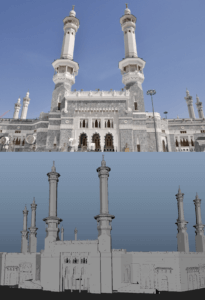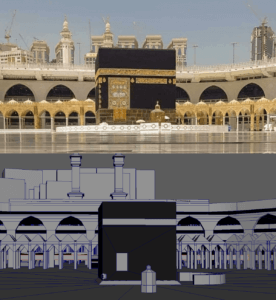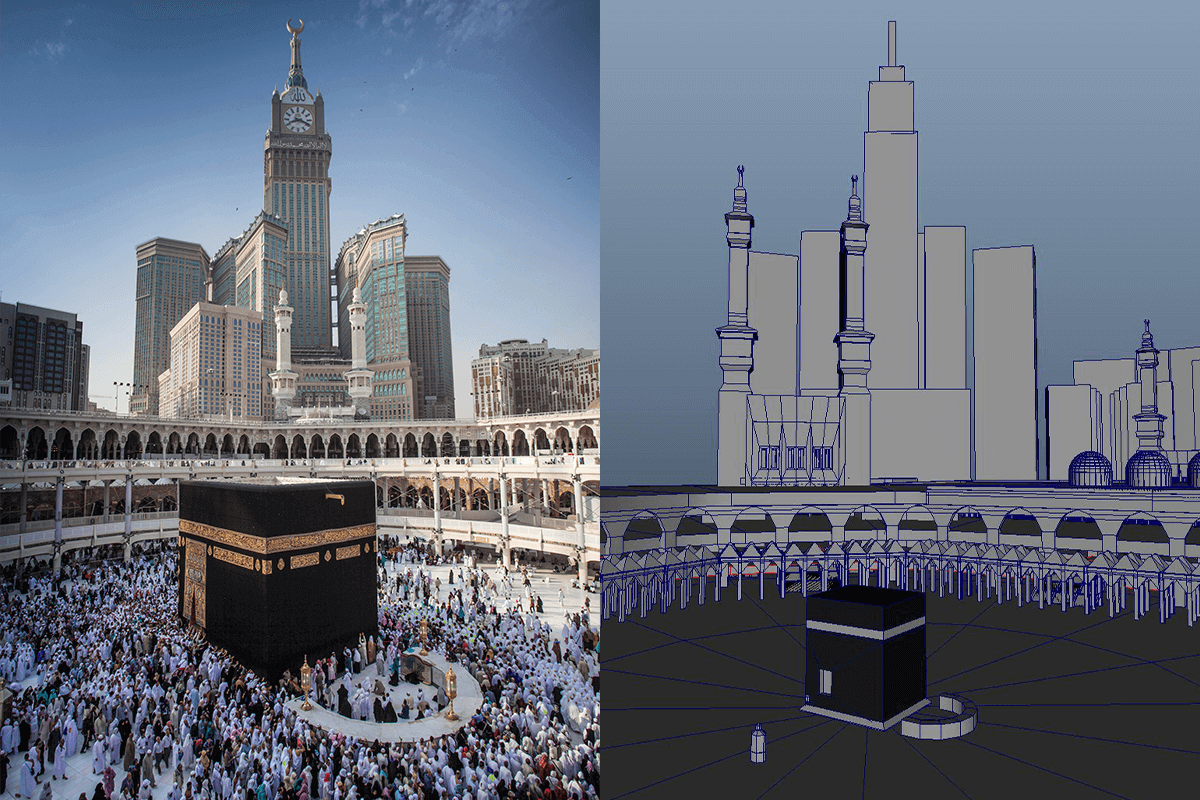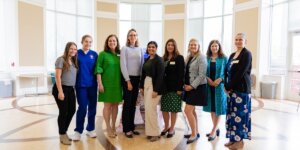Shenandoah University Assistant Professor of Virtual and Augmented Reality Mohammad Obeid, Ph.D., recently secured a $95,000 research grant from the Center for Islam in the Contemporary World to create an immersive virtual reality experience to serve as a training and education platform for the primary religious pilgrimages in the Islamic faith.

The “Pilgrim VR” project, which began earlier this year, pairs virtual reality with religious studies and pedagogy and will educate users on Hajj and Umrah, the Islamic pilgrimages to the holy city of Mecca, Saudi Arabia. When complete, the virtual platform will teach users about the rituals associated with Hajj and Umrah and will allow participants to go step-by-step through the pilgrimages in a simulated, educational and engaging manner.
To achieve that feat, the VR experience will have interaction, gamification, and instructional events as part of a VR application compatible with tethered and untethered VR devices.
Dr. Obeid said the training platform – designed to serve people of all ages, to be accessible to consumers and businesses, and to include story-driven, interactive training modules in multiple languages – will be the first of its kind.
Obeid, who is overseeing the effort as principal investigator and director, is collaborating with Siraj Studios in Jordan, which specializes in content development using extended reality (XR) technologies and has a team of religious studies scholars as well as professional Arabic, history, and media consultants. Responsible for the implementation and execution of the project, Siraj Studios is one of the first studios in the Middle East and North Africa (MENA) region to focus on Islamic culture and cutting-edge technologies such as spatial computing and simulation platforms.
I expect this platform, when complete, to find a place in classrooms and travel agencies, as well as government entities responsible for educating and facilitating Hajj and Umrah trips. Furthermore, there is significant scholarship that constitutes this project to include studying religious guidelines and how they differ around the world, as well as research in simulation and virtual reality. I am very excited about this global partnership with CICW and Siraj, which alone is a significant step towards further internationalizing our programs and scholarship here at SU.”
Mohammad Obeid, Ph.D., Shenandoah University assistant professor of virtual and augmented reality

The Center for Islam in the Contemporary World (CICW) at Shenandoah University is an independent, nonprofit academic center that engages in research, teaching, training and outreach on issues related to Islam and Muslims in a contemporary context. The center connects SU to local, national and international Muslim communities.
“We are very excited about this project as a teaching tool to be used by teachers, prospective pilgrims, those curious about Hajj, and the general Muslim population who would wish to go to Mecca but cannot afford it,” said M. Yaqub Mirza, president of the Center for Islam in the Contemporary World and a member of the Shenandoah University Board of Trustees.
“The grant demonstrates the increasing importance of virtual reality in higher education and international exchange,” said Younus Y. Mirza, Ph.D., director of the Barzinji Institute for Global Virtual Learning. “The collaboration between CICW, Shenandoah, and Siraj Studios is an excellent example of global partnerships and learning.”
The CICW and Shenandoah University are at the cutting edge of teaching and learning methodology. We are thrilled to provide this grant to Shenandoah University and initiate the collaboration with Dr. Obeid and his team. Hajj and Umrah pilgrimages are central teachings and rituals of Islam. The Pilgrim VR project will allow everyone to get a better understanding of the sacred Islamic sites.”
Ermin Sinanović, executive director of the Center for Islam in the Contemporary World




